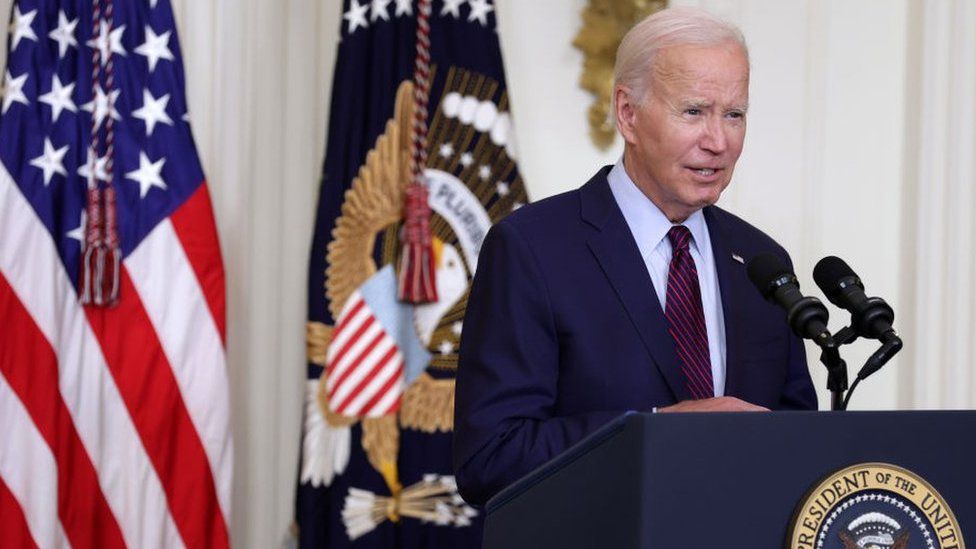President Joe Biden has announced 10 drugs that will be targeted in government price negotiations to make them more affordable for the elderly.
Mr Biden’s Inflation Reduction Act gave Medicare – the government healthcare programme for the over-65s – the power to negotiate drug prices with manufacturers for the first time.
The negotiations mean older Americans could see cheaper drug costs by 2026.
The 10 drugs include expensive diabetes, cancer and heart medications.
In a statement on Tuesday, the Biden administration said direct negotiations between the government and drug manufacturers would allow elderly Americans to get a “better deal” on prescriptions.
“For far too long, Americans have paid more for prescription drugs than any major economy,” Mr Biden said. “Today, the Biden-Harris Administration is delivering on another significant milestone in implementing President Biden’s historic law to lower health care and prescription drug costs and ushering in a new era for American seniors.”
The move is likely to face opposition from drug companies and Republican lawmakers, who have already criticised the measure.
- US Senate passes sweeping $700bn economic package
A majority of adults 65 years or older – about 50 million – use Medicare health insurance for prescription drug coverage. Still, nearly a quarter of older Americans struggle to afford their medications, according to non-profit health research organisation KFF.
The White House said elderly Americans spent $3.4bn (£2.7bn) in 2022 in out-of-pocket costs for the 10 drugs, which include blood thinner Eliquis and popular diabetes treatment Jardiance.
The Centers for Medicare & Medicaid Services selected the 10 drugs because they were the most costly, they do not have generic competitors, and because millions depend on them to “treat life-threatening conditions including diabetes, heart failure, and cancer”, the White House said.
The government will begin to negotiate prices for the drugs in 2023, with new costs set to go into effect in 2026.
Drug price negotiations are a part of broader Biden administration efforts to lower healthcare costs for Americans. Before the Inflation Reduction Act was passed last year, the Medicare programme received discounts for some of the 10 drugs, but was not allowed to directly negotiate prices with manufacturers.
Mr Biden is expected to deliver a speech on healthcare costs at 14:00 EDT (19:00 GMT) on Tuesday.
Major drug manufacturers, including Johnson & Johnson and Merck, have already filed lawsuits to block Medicare negotiation of drug prices, arguing they are unconstitutional.
Several Republican politicians have also expressed opposition, claiming the talks could hamper pharmaceutical innovation because of lower incentives for drug companies.
The public, meanwhile, largely supports the measure. According to a 2021 KFF poll, 83% of those surveyed were in favour of Medicare negotiating directly with drug makers.
